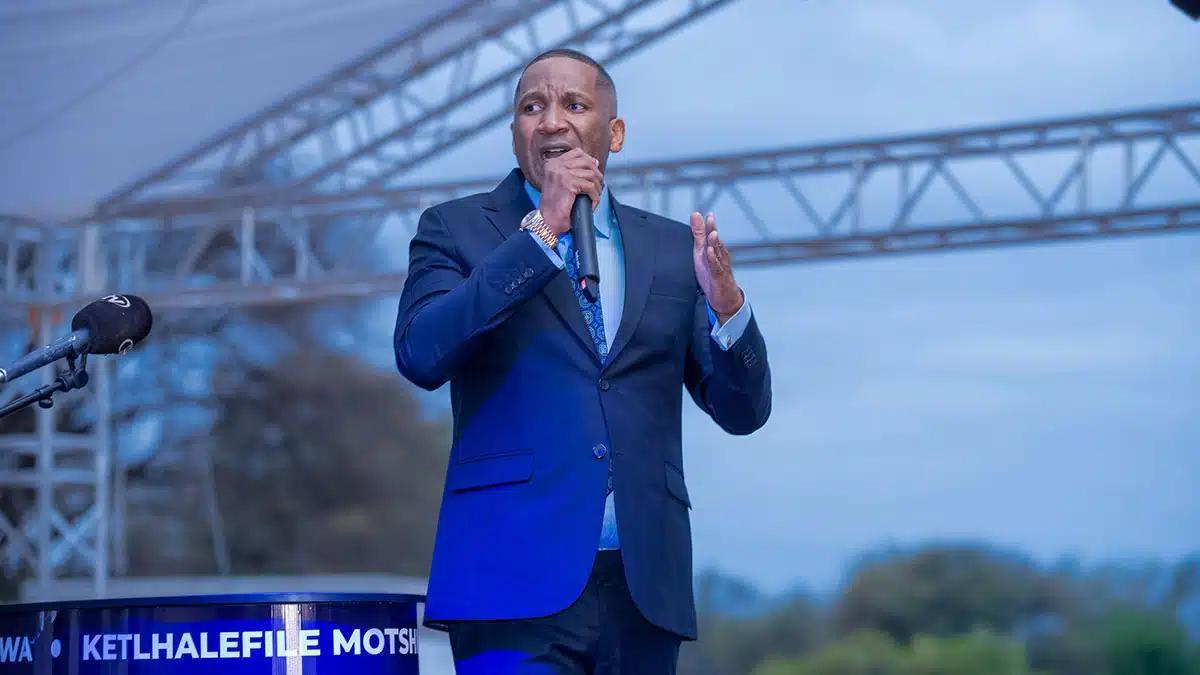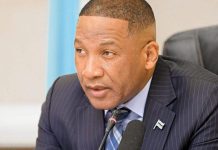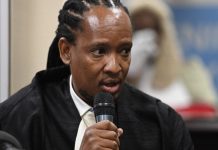Africa-Press – Botswana. Disembarking from the spaceship Apollo 11 to become the first human to step on the surface of the moon in July 1969, American astronaut Neil Armstrong uttered what became an iconic phrase; “That’s one small step for man; one giant leap for mankind.”
Similarly, the electoral victory of the Umbrella for Democratic Change (UDC) and the seamless transition of power from the national leadership of former President, Dr Mokgweetsi Masisi and the Botswana Democratic Party (BDP) to the incumbent Advocate Duma Boko saw Botswana’s democratic credentials take a great leap forward.
Beyond the baby steps President Boko and the UDC were taking into the hitherto uncharted terrain of governance, this was a monumental occasion where Botswana joined the list of matured democracies where smooth transfer of power from the governing party to the opposition is recorded in the annals of history.
As election results trickled in on Friday morning, former President Masisi expressed humility in announcing to a press conference that he conceded defeat, respected the will of the people as reflected in the general election results and wished the incoming President well in assuming duty.
After being sworn-in at the High Court by Chief Justice Terrence Rannowane on Friday, President Boko addressed the nation at the Mass Media Complex in Gaborone.
He confirmed that Dr Masisi had called him to offer congratulations, pledging to assist with a smooth transition and guiding the BDP to being an opposition loyal to the republic.
Adv. Boko paid tribute to Dr Masisi and the BDP for accepting defeat and their commitment to a seamless handover, stating that this entrenched Botswana’s standing as a democracy and that other countries could learn from such conduct.
This marked a historic moment for Africa’s oldest continuous multiparty democracy.
Since independence, Botswana consistently held national polls in five-year electoral cycles; all the 13 general elections from March 1965 to October 2024 were held in a peaceful atmosphere, and Botswana earned a reputation as a ‘shining beacon of democracy in Africa’.
The BDP won the first 12 elections, governing Botswana for 58 years between 1966 to 2024, in addition to the one year of nominal self-government in 1965-66 before full independence.
While BDP dominance always reflected the will of the majority, some felt a true test of the nation’s democratic character would come the day Botswana experienced a change of government.
Come as it did with the results of the Wednesday October 30 general elections, the country passed the test of democratic consolidation and a new dawn beckoned with Adv. Boko sworn-in as Botswana’s sixth President, the first from outside the BDP.
He leads the UDC, a coalition of three political parties- the Botswana National Front (BNF), of which Boko is also party president; the Alliance for Progressives (AP) led by UDC deputy leader Mr Ndaba Gaolathe and the Botswana Peoples Party (BPP) led by UDC chairperson Mr Motlatsi Molapisi.
Founded in 2012, the UDC sought to address the historic challenge of a divided opposition often splitting the vote to the advantage of the BDP.
Ahead of independence, nationalists led by Messrs Philip Matante, Motsamai Mpho and national anthem composer Kgalemang Motsete, founded the BPP.
But the BPP split early on and its founders Mr Matante, Mr Mpho and Mr Motsete contested the 1965 polls in separate parties, as the BDP won a resounding majority.
Dr Kenneth Koma, who returned to the country from PhD studies in Moscow, Russia in time to witness the 1965 elections, unsuccessfully held talks to unite the BPP factions.
Dr Koma proceeded to form the BNF in October 1965, authoring its basic document titled The Botswana National Front: Its Character and Tasks- The Pamphlet Number One.
He conceptualised the BNF as a movement organising the country’s “workers, peasants and progressive sections of the bourgeoisie” into a united front to unseat the BDP and usher in socialist-leaning mixed economy and people-centered democracy.
Some BPP founders including Mr Klass Motshidisi and Mr Fish Keitseng joined Dr Koma in founding the BNF with its rallying call for opposition unity embodied in its ‘Kopano Ke Maatla’ (unity is strength) slogan and clasped hands symbol.
The BPP under Mr Matante, as well as the BNF under Kgosi Bathoen Gaseitsewe and Dr Koma, although outnumbered by the BDP in Parliament from the 1960s to the 1990s, played an important role in nurturing the country’s democracy by leading the opposition in Parliament, offering policy alternatives and providing checks and balances to those in power.
By the 1990s, the BNF had grown to a position of government in waiting, emerging from the 1994 general elections just eight seats short of a simple majority in the then 40 seat National Assembly.
Just as they were anticipated to challenge the BDP for power in the 1999 elections, the BNF suffered a major split in 1998, 11 of their MPs and many party activists leaving to form the breakaway Botswana Congress Party (BCP).
Born in Mahalapye on New Year’s Eve 1969, Duma Gideon Boko grew up observing these opposition dynamics, mentored into politics by BNF elders in his home village, among them Dr Koma and the late Mr Mareledi Giddie.
He obtained an LLB from the University of Botswana (UB), where he was elected the Students Representative Council (SRC) President.
Adv. Boko also holds an LLM from the globally prestigious Harvard University in the United States, and a Diploma in Human Rights and Humanitarian Law from Lund University, Sweden, an institution consistently ranked as one of the world’s top 100 universities.
He practiced as an attorney, taught law at UB and was elected BNF President in 2010.
He worked with the late Mr Gomolemo Motswaledi, whose inner circle later formed AP and Mr Molapisi of the BPP to organise opposition forces into the UDC, formally launched in 2012.
In 2014, Adv Boko was elected Gaborone Bonnington North MP, and served as the Leader of Opposition in Parliament over the period 2014-2019.
In his maiden address to the nation after being sworn in on Friday, Adv. Boko assured the nation that he humbly saw himself as a fallible human who required guidance and is open to criticism.
He encouraged free speech and a Botswana where people openly discuss issues in a ‘market place of ideas’.
He also pledged a comprehensive constitutional review, which would include strengthening oversight institutions to have greater autonomy from presidential or executive interference; and to ensure meritocracy, that people should be employed on merit not political affiliation.
Advocate Boko assumes the Office of the President following in the footsteps of Sir Seretse Khama (1966-1980) Sir Ketumile Masire (1980-1998), Dr Festus Mogae (1998-2008) Lt General Ian Khama (2008-2018) and Dr Mokgweetsi Masisi (2018-2024).
Adv Boko is married to fellow attorney, Ms Kaone Boko, who has assumed the role of First Lady, following in the footsteps of Lady Ruth Khama, Lady Olebile Masire, Ms Barbara Mogae and Ms Neo Masisi.
Source: dailynews
For More News And Analysis About Botswana Follow Africa-Press






